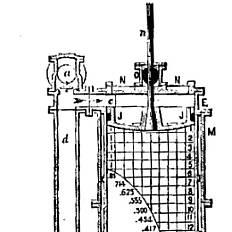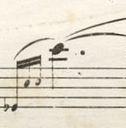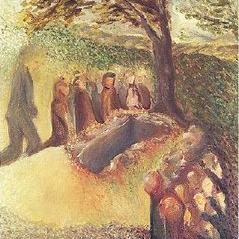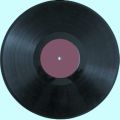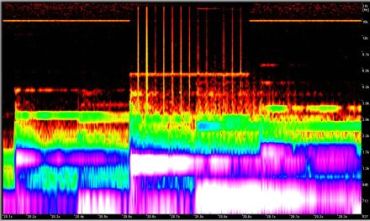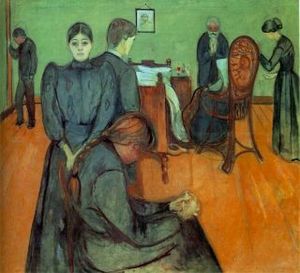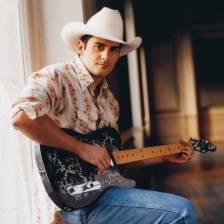When I was a kid I read a lot of books about musical performers, books filled with fantastic tales, of adventures on tour, of transcendental virtuosity -- in the pre-recording era. This stuff can fire a teenager's imagination. After reading about Arthur Rubinstein learning Franck's Symphonic Variations on a long train ride (he went from the station to the first rehearsal), and Josef Hofmann performing a short piece after only hearing another … [Read more...]
Archives for 2009
Chiff
The onset, the leading edge, of a note played on the piano is sudden. All the intensity of the tone comes right at the start, and then is followed by rapid decay. Close-up in a small room or in some recordings, we may be very aware of this edge. The slightly percussive beginning of a tone played on the organ is called "chiff." It can come from the physical opening of the valve which moves aside so air can flow through a pipe and make sound, or … [Read more...]
Interior Decorator
Wrote Arnold Schoenberg (in "Problems in Teaching Art"): "Is technique a cause or an effect, a by-product? Expressive content wishes to make itself understood; its upheaval produces a form. A volcano erupts, the devastation makes an ornamental effect; a steam-kettle explodes, and the objects it strews around fall at points one could exactly calculate on the basis of relationships of tension, weights, distances and resistances. One can, … [Read more...]
All feet
The patterns of stress inform everything. More, less. Less, more. Our languages (our speech) inform our music, our thought, our designs, and concepts -- our emotions? I am -- iamb! In Western European music, the falling inflection predominates, strong, then weak. That's the two-part poetic foot, the "trochee." "Iambs" (weak - strong) are rarer in music and (?) in French, German, Italian (so rare as to need a marking -- città). In these languages, … [Read more...]
Roll
Some elaborate preparations to long notes in piano music are attempts to mimic the ways singers can begin a sound. The many shadings and extensions of initial consonants may get translated into piano music as multiple short notes, usually notated in small print. Though often marked with a slur, this kind of writing can still be confusing. The articulateness of the keyboard is certainly what's not wanted -- these are compound sounds. I … [Read more...]
Where can artists learn?
Where do artists learn best? In the midst of a bucolic landscape -- with no urban distractions? Or, is "natural" beauty distracting? Is there an ideal environment for making art? Perhaps, different arts come from different places? Pianist Russell Sherman writes: "The large cities of the world provide a treasure trove of culture and its artifacts, of concerts, theaters, museums, and libraries nurturing the forces of creation and … [Read more...]
One note at a time
The work of the performer may seem repetitious. We are measuring out time with our playing and practicing. We are measuring out life, one Beethoven sonata at a time. In a sense, am I measuring my way toward death with my performances? I might speculate: "Will I play Beethoven's "Pathétique" Sonata a hundred times more before I die?" Or five times? Or never? Arnold Schoenberg: Gustav Mahler's Burial, 1911 Of course, all kinds of people … [Read more...]
Withdrawn
Sometimes a piece of music is "withdrawn" from a composer's catalog. Music that was composed, published, and available is taken back -- rescinded. You can't get it anymore. Usually, the composer has thought better of it: the music doesn't hold up now, the composer's style has changed a lot, it's an early piece that just doesn't seem good enough for public display... All of Philip Glass's early non-tonal music is unavailable now. I play(ed) a … [Read more...]
I don’t see red
At last, I approved the master for my new CD. After the final round of sound renovations on the trickiest track -- a slow, mostly quiet piece in which some mysterious high frequency sounds were recorded along with the music -- Bob Katz sent me some before and after pictures: BEFORE ___________________________________________________________________ AFTER Using editing software that visualizes the recorded music across the … [Read more...]
Life and Death
In a seminar, I ask each of a group of young pianists to talk very briefly about a piece they know -- as they might speak to an audience before performing. I urge them to be pithy, personal, compelling. I don't like the "Beethoven-was-born-in-1770 approach," I tell them. Music is important. It engages with the big questions, I say. One seminar participant asks me to give an example of the sort of commentary I want. So, I say: "Imagine I'm … [Read more...]
Congratulations Marty!
After preliminary rounds of Juilliard piano concerto competitions -- judged by the faculty, final rounds were judged by outside musicians -- one ritual always surprised me. After the voting, and after the announcement of the names of three or four pianists who would advance to the final round, hands were shaken, backs slapped. "Congratulations Herbert!" "Congratulations Marty!" The teachers of the winning students were congratulated, almost as if … [Read more...]
Soundtrack
As the iPod becomes ever more pervasive, once again the relationship between music (or recorded music) and life is changed. Some people are wired. They have one earbud in, as they talk, walk, and do everything: Life with a soundtrack. With the shuffle function activated, randomly recurring tracks make thematic links, interpreting the repetitive tasks, and events of existence. In new television shows, there can be long passages with no … [Read more...]
Humble pie
In Cleveland, at the Ohio Theatre, they told me Philip Glass just recently played there on the piano I was using. The next pianist coming soon is Krystian Zimerman. This sort of thing makes you feel humble. And it occurred to me -- that might even be about where my playing is artistically (?), pianistically (!), or aesthetically, somewhere in between Glass and Zimerman... … [Read more...]
Tail wind
My flight to Los Angeles took over six hours. Coming back to the east coast with a strong tail wind making the flight easier and faster, the flight lasted only four hours and twelve minutes. Rudolf Serkin is sometimes credited with having said: "Playing the piano is easy, if everything goes well." Raising the question, "What about when it doesn't go well?" Then it's harder, then it takes more fuel. Then, you need to be an "expert," a "master," a … [Read more...]
Piano Country
Keyboard music has always been linked with transcribing: making sung, or strummed pieces (or gestures), into something fingers can play on keys. The earliest extant keyboard pieces are transcriptions (more properly "intabulations," because they are written using the little diagrams called tablature): Robertsbridge Codex, circa 1350 One of my former students is making solo piano versions of Detroit techno. I've made piano transcriptions of … [Read more...]



